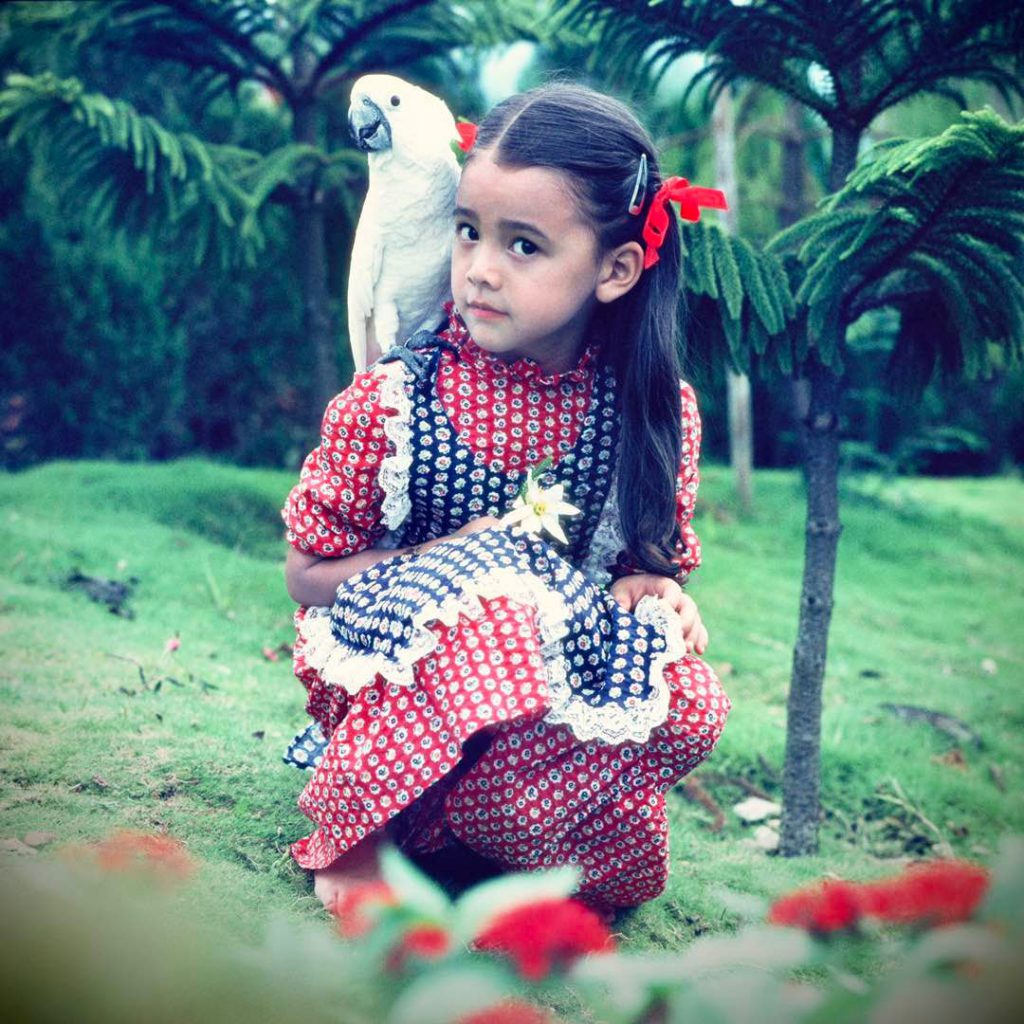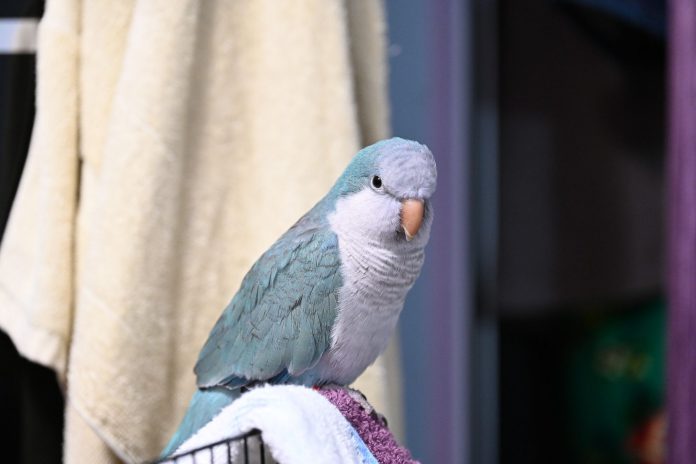Parrots eventually returned home after being lost.
By Hannah Tang
Bao Bao, a one-year-old male Myiopsitta monachus, also known as monk parrot, went missing for two days after flying away from home in October. The mother of its owner, Kelly Chen, had accidentally let it out from a cage when the windows were open.
Chen, who has been taking care of the parrot for almost a year, often lets it stay out of its cage to play around at home as parrots need time to roam freely at home for better mental health.
“I pay extra attention whenever I let Bao Bao roam around at home. I always make sure all windows and doors are closed,” Chen says.
“Most parrots do not know how to return home safely so it is important to prevent them from flying out and getting lost,” she adds.
Chen rushed out to look for Bao Bao when it went missing. She also sought help from the Hong Kong Parrot Rescue (HKPR) on the same day to look for Bao Bao as she worried it could not survive on its own. Posters were published in HKPR’s Facebook to make a public appeal.
“Fortunately, a neighbour who also owns monk parrots reached out and asked me to pick up Bao Bao when he saw our poster two days later. It had accidentally flown into his home and he took good care of it in those days,” she says.
Once Chen took Bao Bao home, she installed window nets in her flat to prevent the same accident from happening.
“HKPR will first help owners by sharing posters on their page once they receive the call. Posts are also made on the group’s Facebook page to spread the information about missing parrots. This makes the searching process more efficient,” Chen says.
“Bao Bao is my first parrot. I cannot describe how much I love him and how devastating it was when I lost him. If owners do not act after a parrot is lost, they are irresponsible and simply do not love parrots,” she says.
Like Bao Bao, Sai Lo, a one-and-a-half-year-old male Aratinga solstitialis, commonly known as sun parrot, lost its way home recently.

Sai Lo accidentally slipped out from a crack of its cage and flew up to a tree near its home in the rural area of Tsuen Wan in October.
Its owner, Kelly Tang, immediately went into the woods to search for it, while a friend of hers referred her case to the HKPR.
“I successfully brought Sai Lo home the next morning by shaking his favourite food and playing recordings of other parrots’ calls from my phone when looking for him in the woods. I felt so relieved when Sai Lo came home,” Tang recalls.
After Sai Lo’s return, Tang spent more time talking to it in hopes of building a stronger bond.
“Sai Lo kept looking for a way out to explore the outside world after its first escape. This has made me think if I should just let it roam free and train it to go back home for food only when he needs it,” Tang says.
“Even though I have mixed feelings seeing it in the cage, I know that if it is lost, it may not survive,” she continues.
Tang adds that parrots fly well but they may not be able to recognize the way back home even if they are trained. They may also get sick with infectious diseases or food poisoning when they are out.
“I have two parrots, Sai Lo and Mui Chu, which is a female parrot of the same breed. They are so precious to me. They recognize me and soothe me. As an owner, I must try my best to protect them,” Tang says.
Sharon Kwok Pong, the chief and founder of HKPR, says more people have become pet parrot owners since 2020 when the city was hit by the pandemic.

“Being intelligent, approachable and playful, parrots are popular among pet owners and many consider them as ideal companions,” says Pong.
“But many pet owners do not know how to take good care of parrots and many of them have gone missing. We hope our platform can provide support to the lost birds and advice to owners who currently own or are planning to own parrots,” she continues.
The group now has over 13,000 followers on Facebook, sharing knowledge of raising parrots and rescue stories.
As Pong’s father is one of the founders of Ocean Park where many parrots over the years are raised and trained, she grew up surrounded by animals and now owns over a dozen parrots.

She also has taken part in the rescue and preservation work of animals, especially endangered species, making up one-third of the parrot breeds.
“There are over 800 falcons that prey on lost parrots who get lost on Hong Kong Island alone, not to mention many natural enemies in the wild that threaten human-bred birds. I started the rescue group as there were too many in need and I felt an urgency to get this done,” she says.
“Parrots often outlive humans. Many are suffering from the consequences of irresponsible ownership and under-regulated trades. I wish no parrots needed to be rescued from the wild anymore,” Pong says.
She urges pet owners to think twice before owning pets and to use all possible preventive measures to prevent losing their beloved parrots. “Parrots are so brilliant and affectionate, proper care and companionship for the birds are vital to ensure both their physical and mental health,” she adds.
Edited by Eve Qiao
Sub-edited by Amelie Yeung







































